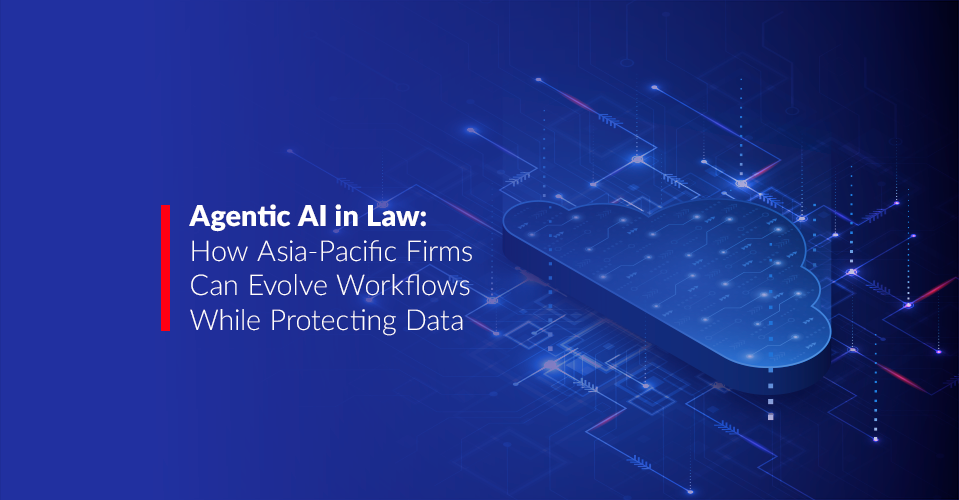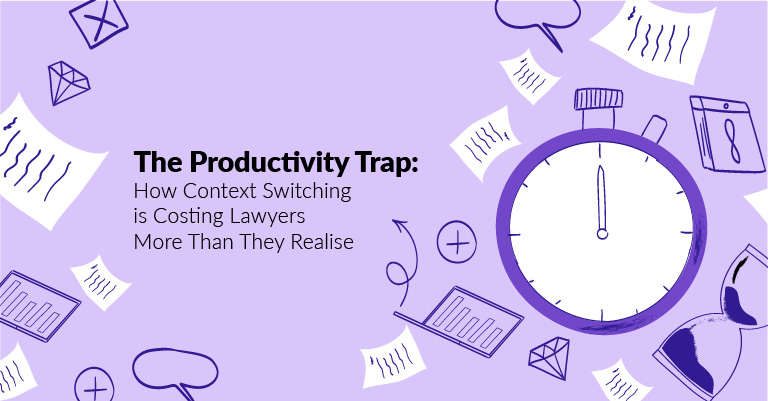Capital Monitor™ Editorial by Keely Garcia A single week in November 2023 saw four women lose their lives in South Australia amid domestic and family violence, an alarming record across any Australian...
Artificial intelligence is transforming the legal industry, there’s no doubt about that, but the conversation is shifting from chatbots and generative AI to something far more powerful: agentic AI. The...
In today’s fast-paced legal environment, the pressure to produce high-quality work quickly is intensifying. Yet, the very digital tools meant to boost productivity are often doing the opposite. Lawyers...
Companion animals now recognised as more than property in family law decisions. On 10 June 2025, major reforms to Australia’s Family Law Act 1975 (Cth) came into effect. For the first time, Australian...
Australian lawyers have a reputation for being pragmatic; and this trait shows when the conversation turns to artificial intelligence. There’s no blind rush to adopt the latest shiny tool, no “AI or...

Law firms across the world are increasingly becoming conscious of the pivotal role Data plays in determining the future of their business and practice.
At the centre of every matter, every case and every argument is Data. Data about historical judgments, legislation, analytical content, expert opinions and firmographic information about clients, industry news, the opposition or your own teams.
Legal research is and always will be the mothership that navigates law firms into the future but what will give practitioners the edge is the ability to access the data they want in the context they are in and in the format they wish to use it. – Lawyers predominantly spend time working on their matters within their practice area pages, drafting tools and document management systems. Instead of spending time ploughing through different research platforms, getting access to the point-in-time data where you need it will be the game changer saving valuable staff time and giving users more confidence when performing their daily tasks.
Not only Practitioners, the need for ‘content in context’ would also be beneficial to In-house counsel and marketing and business development teams to stay abreast of the latest developments in the legal industry, as well as the commercial environment their employers/clients operate in.
APIs (Application Programming Interfaces) are the trump card that can help you access the data you need at the exact moment you need it.
An API is a method by which two disparate systems or softwares could talk to each other. They are a toolkit that your IT teams could use to pull data from legal technology and content providers such as LexisNexis® into your workflows in the way you want it to be surfaced – without logging into the products, from behind the firewalls directly into your environment.
Imagine working on a matter that requires reference to changes in legislation for a particular offence, cases related to the legislation and secondary material references. APIs could pull all the information you need and provide it to you while you are working on that matter, within your workflow.
What if you wanted to understand client and Industry data to anticipate behaviour and prepare your firm to address their needs or acquire new business? APIs could pull firmographic information and news and make it available to you in the systems you want to run your analysis and modelling on.
Some practical examples of how APIs can be used in practice include:
Create a customised workflow ─ Add a simple search box to your Intranet Portal or Practice area pages to surface search results directly from the content provider
Integrate with your Firm’s data ─ Add information from your Firm’s document management systems to the custom-built workflow to get more cohesive results.
Be aware of changes ─ Use the APIs alerting capabilities to stay informed of changes and the impact of regulations or key aspects of the Law most relevant to your matter on a real-time basis.
Enrich your data experience ─ Ensure you have the most recent and marked-up search results from your content provider along with the firm data you are using in your task.
The technology that powers legal content is evolving in more ways that you can imagine. Data-driven law firms are already leveraging Analytics and AI-powered capabilities of legal tech and content businesses such as LexisNexis.
It’s now about taking the next step to up your game and make the content you need available where you want it. Getting all the data you need within your workflow is no longer a futuristic use case. It is already here.
Stay in control of your firm more than ever before, with better, enriched and more accessible data.
 |
Seeta Bodke is a Product Manager at LexisNexis for Lexis® Web Service APIs and Lexis® Legal Analytics . Lexis Web Service APIs integrate the trusted, authoritative content you’ve come to expect from LexisNexis directly into your most important business application within your own environment. End users can now have instant access to critical, relevant information as an integral part of their daily workflow. The content, available on Lexis Advance®, but delivered through our APIs will save valuable staff time, help drive deeper insights and give you and your users even more confidence when performing your daily tasks. The expansive universe of LexisNexis content now available at your fingertips To know more about Lexis Web Service APIs please fill in the form below and we will contact you. |





